THE PREPPER’S MEDICINE CABINET
In this blog, I will focus on just over-the-counter medicines available for purchase from the shelves of your local drug store, supermarket, or even online. The good thing about over-the-counter medications is that the Food and Drug Administration regulates them. There are approximately eight hundred OTC active ingredients available today that constitute more than one-hundred-thousand OTC products in the healthcare marketplace. Like prescription drugs, OTC medicines are regulated by the U.S. Food and Drug Administration (FDA). This means that you can purchase a generic OTC drug at the dollar store that will have the same formulation and potency as a name brand, more expensive version. Often, they are made side-by-side in the same factories.
Now, I am not a doctor, and I am not giving medical advice. If you have questions about any medicine, even over-the-counter medications, please consult a pharmacist or doctor. What you store in your home prepper medicines will depend upon your needs and the needs of those in and around your network.
There are two main reasons to build up your supplies of over-the-counter medications in your prepping supplies. The first is that more and more companies are outsourcing to foreign countries to cut costs on expensive equipment, employees, and infrastructure. While this has helped their bottom line, there is continued concern about the quality and consistent supply of these active pharmaceutical ingredients (APIs) produced overseas. The majority of APIs, around forty percent of the total global supply, are manufactured in China. The majority of these are formulated into their generic drugs in India. Both China and India have suffered tremendously from the events of last year that have impacted the supply chain. This could disrupt future supplies, so there is a small window to get ahead of shortages should they occur in the immediate future. At any given moment, the FDA reports over a hundred different drugs “Currently in Shortage.” The second reason is that over-the-counter remedies are often one of the most overlooked preps. Most people, even preppers, find themselves with outdated medications or find themselves running out of medications after a disaster strikes because their supplies were insufficient. You should treat your over-the-counter medications as an important part of your preps. I’ll also post links in the description section below to all the items we discuss. Before we jump into the specific items, there are a few things you’ll need to consider, so let’s jump in.
STORAGE AND EXPIRATION DATES
The ideal storage conditions for your medication are a cool, dry, dark location without temperature variations. An insulated container can help maintain a consistent temperature and increase the shelf life of medicines by reducing the rate at which they degrade. Many drugs stored in a climate-controlled and oxygen-deprived environment like their original packaging can retain their potency for five years or longer. A large insulated bag or repurposed cooler is ideal for maintaining a moisture-resistant and temperature-controlled environment. With any medication, you want to make sure it is within the expiration date before you take it. When you add it to your supplies, put a large dot sticker on it either green, yellow, or red. On that sticker, write the month and year of expiration. Use a green sticker if the medicine will last well beyond its expiration date, according to the research you do online. Use a yellow sticker if the medication will lose potency beyond  the expiration date. Don’t try and use more to compensate for this loss of potency. Continue to use it as prescribed, as it will not be possible to determine how much it has degraded. One of the reasons over-the-counter medications are available without a prescription is their long and stable shelf life. Some medicines, however, can become dangerous to take if they are beyond their expiration date. Some medicines may even change their chemical composition over time, so it isn’t an issue of potency and dosage at that point. Save your red labels for any medications you really should not take after their expiration. These will likely be your prescribed medicines. Insulin, oral nitroglycerin, tetracycline, antibiotics, eye drops, nasal mists, and injectable medication of any kind should not be taken after they have expired. However, regarding over-the-counter medicines, you should not take or use any that powdery, discolored, smell, or changed composition in any way.
the expiration date. Don’t try and use more to compensate for this loss of potency. Continue to use it as prescribed, as it will not be possible to determine how much it has degraded. One of the reasons over-the-counter medications are available without a prescription is their long and stable shelf life. Some medicines, however, can become dangerous to take if they are beyond their expiration date. Some medicines may even change their chemical composition over time, so it isn’t an issue of potency and dosage at that point. Save your red labels for any medications you really should not take after their expiration. These will likely be your prescribed medicines. Insulin, oral nitroglycerin, tetracycline, antibiotics, eye drops, nasal mists, and injectable medication of any kind should not be taken after they have expired. However, regarding over-the-counter medicines, you should not take or use any that powdery, discolored, smell, or changed composition in any way.
Many medications have proven effective far after their expiration date, but you should continue to use caution. The best evidence that some drugs can last past their expiration date is from the Shelf Life Extension Program (SLEP) undertaken by the FDA for the Department of Defense. Based on stability data, expiration dates on 88% of the tested lots were extended beyond their original expiration date for an average of 66 months. Of these, roughly 12% more lots remained stable for at least four years after the expiration date. Specifically, diphenhydramine, a common antihistamine, was studied to last almost 15 years in tablet form. Aspirin is most effective within five years of expiration but will simply lose potency over time. Tylenol and acetaminophen are best within 4 to 5 years in pill form but can be taken even further from their expiration date. The expiration dates are more for effectiveness and dosage and are required by regulations, but the most significant risk is they lose effectiveness over time rather than safety. Whatever you put in your preppers medicine cabinet, use the stickers to mark any precautions. Writing the expiration date on the label and the color code will give you a quick glance after a crisis. The last thing you want to do is search around the fine print of a perhaps damaged bottle of pills for the fine print of a worn label’s expiration date when you’re already under a stressful situation. Also, consider getting a small storage container to keep all these organized in a central location so these items are not scattered around random places in your home.
FIRST NEEDS
Your first over-the-counter meds to have on hand are any medications needed or required for your family. Any condition you currently manage with over-the-counter medicines you will want to address. Eczema, allergy, asthma, migraines, acid reflux, constipation, digestive aids, testing strips, topical creams for pain, itch creams, ear drops, eye drops, and anything required for ongoing and regular treatment of any existing conditions is your first priority because any current condition left untreated after a disaster can quickly become even worse. Understand the typical conditions you have and take care of those in your stockpiles first. Then determine the needs of your immediate family and make sure to have those items on hand. Finally, consider any of those family members who may need to shelter with you after a large-scale and prolonged disaster. Elderly parents and others will also need over-the-counter medicines that may be in short supply.
aids, testing strips, topical creams for pain, itch creams, ear drops, eye drops, and anything required for ongoing and regular treatment of any existing conditions is your first priority because any current condition left untreated after a disaster can quickly become even worse. Understand the typical conditions you have and take care of those in your stockpiles first. Then determine the needs of your immediate family and make sure to have those items on hand. Finally, consider any of those family members who may need to shelter with you after a large-scale and prolonged disaster. Elderly parents and others will also need over-the-counter medicines that may be in short supply.
SECONDARY NEEDS
Secondary needs are other common over-the-counter needs, many of which come from exposure to the elements and the environment after a disaster. Often, these are medications and treatments that we have in our medicine cabinets that we grab once a year or may never end up using, but we know we have to have it on hand. Some of those include the unopened packages you end up throwing out when you clean out your medicine cabinet because you purchased it as a precaution but never used it. Did you purchase an anti-diarrheal medication before your big trip, but everything was fine? That’s one of these medicines you might have needed but didn’t. Some of these include items we may have used once but haven’t needed since. Did you buy an expensive poison ivy treatment cream but only used it one time? That is another secondary medicine. You don’t need a secondary medicine every day, every week, or perhaps not at all, but you will certainly need it after a disaster. Here are several secondary medications to consider:
IBUPROFEN/ACETAMINOPHEN/NAPROXEN/ASPIRIN
These pain medications effectively treat pain, ranging from sore muscles to earaches to toothaches. Naproxen, Ibuprofen, and Acetaminophen can be given as a fever temperature reducer if a person’s temperature is dangerously too high. Still, aspirin should never be  given to someone with a fever. Aspirin is an effective pain reliever. Aspirin, Naproxen, Ibuprofen, are all anti-inflammatory. Aspirin and other drugs in the class of NSAIDs are blood thinners, as well, so you want to make sure not to exceed recommended dosages, and you need to be sure you don’t compound other problems related to blood thinning, blood pressure, or bleeding. In a prolonged grid-down situation, you need to know that Aspirin belongs to a family of compounds called the salicylates, the simplest of which is salicylic acid, the principal metabolite of aspirin. Salicylic acid is responsible for the anti‐inflammatory action of aspirin. The word Salicylic comes from the Latin salix, which translates into “willow tree.” This is because White Willow bark contains salicylic acid. So, if your headache, ache, and anti-inflammatory medicines are used up or ruined, find a white willow tree, scrape some bark, and make tea.
given to someone with a fever. Aspirin is an effective pain reliever. Aspirin, Naproxen, Ibuprofen, are all anti-inflammatory. Aspirin and other drugs in the class of NSAIDs are blood thinners, as well, so you want to make sure not to exceed recommended dosages, and you need to be sure you don’t compound other problems related to blood thinning, blood pressure, or bleeding. In a prolonged grid-down situation, you need to know that Aspirin belongs to a family of compounds called the salicylates, the simplest of which is salicylic acid, the principal metabolite of aspirin. Salicylic acid is responsible for the anti‐inflammatory action of aspirin. The word Salicylic comes from the Latin salix, which translates into “willow tree.” This is because White Willow bark contains salicylic acid. So, if your headache, ache, and anti-inflammatory medicines are used up or ruined, find a white willow tree, scrape some bark, and make tea.
TOPICAL PAIN & ITCH RELIEVERS
From itch relief to arthritis relief to muscular pain relief, you should have an assortment of topical pain and itch relievers. Popular brands include Capzasin, Bengay, Arnicare, Mountain Ice, and Aspercreme for pain relievers, and popular brand itch relievers include Gold Bond, Benadryl, and Cortizone 10. If you live in an area heavy with poison oak or poison ivy, you could include cream or wash specifically for this purpose; however, many hikers and campers have been using Dawn Dish Soap for years for this purpose. It will remove the toxic oil of these plants from skin. You can usually find a small travel size of this for very little money. Though the name-brand topical relievers are great, look at the active ingredients, and there is usually a comparable or equivalent no-name generic of the same item. Often they are produced out of the same factory, just labeled differently. A bonus of mentholated creams is that they will repel insects as well.
BURN CREAMS AND SUNSCREENS
Exposure to fires or the sun can result in burns that can stop a person in their tracks and create a medical emergency. A disaster may expose you to several hours of direct sunlight for which you would want protection. Think of any natural disaster as potentially resulting in a full day’s exposure to the sun. If you don’t have protection, the resulting burn could immobilize you, make you violently ill, or even, in the worst  of situations, kill you. Just as you have an emergency hat in your prepper inventory, make sure you have some powerful sunscreen as well. 75 to 100 sun protection factor is the best, since tanning or providing yourself just a little protection won’t be practical in a disaster. Pay up and get an easy to apply zinc-based formula and include a tube of the white stuff- zinc oxide powder. Upon application, zinc oxide particles sit on the outermost layer of your skin, where they scatter, absorb, and reflect ultraviolet radiation, protecting your living skin below. Zinc oxide is unique among sunscreen ingredients in that it is indeed a broad-spectrum blocker, protecting from UVA, UVB, and even UVC. You may want to consider straight-up zinc oxide powder for the ultimate guarantee of post-disaster protection from the sun. Sixteen ounces of organic powder can be had for under $15 and can provide a small army with enough protection when mixed with any basic oil or lotion. When it comes to burn creams, most are for some antibiotic protection, moisturization, and pain relief. I suggest frequently changing wet bandages or keeping exposure to the air but treating with Aloe Vera. Pure Whole Leaf Aloe Vera powder can be stored almost indefinitely and, when mixed with clean water, is an effective burn treatment. It can also be combined with your zinc oxide powder and a little water to create an effective sunscreen.
of situations, kill you. Just as you have an emergency hat in your prepper inventory, make sure you have some powerful sunscreen as well. 75 to 100 sun protection factor is the best, since tanning or providing yourself just a little protection won’t be practical in a disaster. Pay up and get an easy to apply zinc-based formula and include a tube of the white stuff- zinc oxide powder. Upon application, zinc oxide particles sit on the outermost layer of your skin, where they scatter, absorb, and reflect ultraviolet radiation, protecting your living skin below. Zinc oxide is unique among sunscreen ingredients in that it is indeed a broad-spectrum blocker, protecting from UVA, UVB, and even UVC. You may want to consider straight-up zinc oxide powder for the ultimate guarantee of post-disaster protection from the sun. Sixteen ounces of organic powder can be had for under $15 and can provide a small army with enough protection when mixed with any basic oil or lotion. When it comes to burn creams, most are for some antibiotic protection, moisturization, and pain relief. I suggest frequently changing wet bandages or keeping exposure to the air but treating with Aloe Vera. Pure Whole Leaf Aloe Vera powder can be stored almost indefinitely and, when mixed with clean water, is an effective burn treatment. It can also be combined with your zinc oxide powder and a little water to create an effective sunscreen.
ANTIDIARRHEALS/ACTIVATED CHARCOAL/ANTIEMETICS
Loperamide, commonly called Imodium, will stop diarrhea, and diarrhea will quickly dehydrate you and prevent you from being mobile. Activated charcoal can be taken if poisoning is suspected, but do not combine it with any drugs used for constipation. The charcoal is meant to bind to the toxins and carry them out of the body. That same process, however, can reduce the absorption of good medicines and nutrients. Antiemetics are drugs that are effective against vomiting and nausea. The iconically pink Pepto Bismol, which is Sodium Bismuth, has a long shelf life in its pill form. Even if your supply runs out, there are several very effective natural remedies. Fennel seeds or ginger are just two that can be readily obtained in the wild or stored in dried form for years. Ginger may also increase the effectiveness of other drugs. For gas or bloating or acid reflux, TUMS, Rolaids, and similar chalky tablets can store and keep for a very long time and will not lose potency over time.
are just two that can be readily obtained in the wild or stored in dried form for years. Ginger may also increase the effectiveness of other drugs. For gas or bloating or acid reflux, TUMS, Rolaids, and similar chalky tablets can store and keep for a very long time and will not lose potency over time.
LAXATIVES
Polyethylene Glycol, Psyllium Husk, Suppositories, ExLax, and other laxatives are essential to have in your OTC prepper medicine cabinet. The sudden dietary changes after a disaster can result in constipation and other problems. A little of any of these go a long way to helping to keep your bowels moving and alleviating gastrointestinal distress. They will store for years if they are kept in a dry and temperature-stable environment.
ANTIHISTAMINES
My go to antihistamine is Benadryl which is Diphenhydramine. Hives, insect bite reactions, nausea, insomnia, allergies, even anxiety can all be treated with this drug. It can be taken as a precautionary medication after unknown insect bites or at the early signs of an allergic reaction. It has a sedative effect, so it will make you drowsy. That can be good after a disaster when stress can prevent necessary sleep. Other common antihistamines may be geared more directly toward treating the sinuses but will last two years after their expiration date. Here they lose effectiveness and do not typically change their composition, and become dangerous. Diphendramiamine will last even longer. Be cautious of both the sedative effect of these drugs and the dehydrating effect. If water insecurity is real, you may want to suffer through a bit of sinus pain to maintain proper hydration.
NASAL DECONGESTANT
When you need to open sinuses up, Phenylephrine HCl, the main ingredient in nasal decongestants, is a solid option. Congestion, colds, flu, allergies, bronchitis, or any situation where the bronchial are irritated may all be a good time for this medication. Fortunately, just a little goes a long way. It is a good choice for your prepping medicine cabinet and will retain potency for many years. Do not exceed the recommended dosage. If you exceed the recommended dosage, you may experience rapid heart rate, palpitations, headache, vomiting, anxiety, and a host of other problems.
ANTI-FUNGAL CREAMS
Clotrimazole and Tolnaftate creams are effective anti-fungal creams. Fungus infections, yeast infections, ringworms, and a host of other itchy skin problems can all be treated with multiple doses of these creams. Several tubes can be purchased in bulk and easily stored. As the tubes are sometimes as small as a half-ounce, they make a perfect trade item in a grid-down situation. If you have ever had a persistent itch, you will know why this is true. When you have a horrible itch, you will trade most anything to be relieved of it. In this same category is Miconazole Nitrate. This is more specific as a vaginal antifungal, but it can treat other common yeast problems. I have seen it used effectively to treat a Beagle’s itchy ears, for instance. It just won’t fix your athlete’s foot problem.
HYDROCORTISONE CREAM/NEOSPORIN
Hydrocortisone cream for itch relief and minor skin irritations will protect you against everything from rashes to dermatitis to relief from  insect bites. Neosporin or bacitracin ointments will protect minor cuts and scratches from becoming infected. Cuts and scratches in a post-disaster environment can quickly become infected.
insect bites. Neosporin or bacitracin ointments will protect minor cuts and scratches from becoming infected. Cuts and scratches in a post-disaster environment can quickly become infected.
MINERAL OIL/PETROLEUM JELLY/HONEY
Mineral oil is helpful as a neutral oil mixed with other items like zinc oxide powder mentioned earlier. Small amounts may be taken as a laxative, but its best use is to coat the skin and create a barrier between minor scratches and potentially infectious water. Make sure it is food-grade mineral oil. Petroleum jelly can also create a barrier of the same type. Both will prevent chafing. Both have multiple other uses beyond the topical application, including use as fuel oil. Honey is in this category because it can be used as a wound treatment. As early as ancient Egypt, honey has been directly applied to open wounds. Honey can be used on any type of wound at any stage of healing. Research has shown honey to be capable of clearing infection, healing infected surgical wounds, and thwarting the progression of necrotizing fasciitis– gangrene. The healing property of honey is because it offers antibacterial properties, maintains a moist wound condition, and its high viscosity helps to provide a protective barrier to prevent infection. One note of caution, however, it is hydrophobic, so microbes cannot establish colonies. Don’t dilute it with water when applying it in this manner. Mineral oil, petroleum jelly, and honey can all be used to protect and heal chapped lips which are common after disasters dehydrate people, and expose them to the elements.
ORAL ANESTHETIC/BENZOCAINE/CLOVE OIL
 Oral pain will stop you dead in your tracks and can make it difficult to eat when calories are critical. An oral anesthetic like benzocaine or clove oil can soothe damaged or painful mouths. Clove oil contains Eugenol, which is the primary ingredient in most dentist-recommended mouth pain relievers, so it has been used for hundreds of years as a remedy. Clove oil will repel some insects, as well, and a little goes a very long way. Teeth are an overlooked prep, in my opinion, but damage to the mouth from a disaster or in the aftermath of a disaster is very common.
Oral pain will stop you dead in your tracks and can make it difficult to eat when calories are critical. An oral anesthetic like benzocaine or clove oil can soothe damaged or painful mouths. Clove oil contains Eugenol, which is the primary ingredient in most dentist-recommended mouth pain relievers, so it has been used for hundreds of years as a remedy. Clove oil will repel some insects, as well, and a little goes a very long way. Teeth are an overlooked prep, in my opinion, but damage to the mouth from a disaster or in the aftermath of a disaster is very common.
MEDICATED POWDER
Finally, a medicated powder or talc powder is beneficial. Exposure to the elements or long periods without the ability to bathe can lead to chafing and rashes. The powder can alleviate and prevent this. Some people don’t like medicated powders, and some people don’t like the smell of baby powder, so which one you choose is a matter of preference. The zinc oxide powder I mentioned under sunscreens fits this category as well. Either as a powder or mixed with a bit of neutral oil or moisturizer, it will successfully treat various skin conditions, including minor abrasions, burns, chafing, diaper rash, insect bites, and minor skin irritation.
CONCLUSION
A well-stocked emergency supply of over-the-counter medications is probably the most needed prep after food, water, and shelter that you will have after a disaster or for surviving the aftermath of a disaster; however, most people, even preppers, simply rely upon what they have at the current moment in their medicine cabinet. In a prolonged grid-down situation, the drug stores and medicine aisles of supermarkets will be some of the first areas looted. People will be desperate for these everyday, over-the-counter remedies. If manufacturing and distribution problems continue to plague China and India, there could be shortages even before any major disasters strike.
What do you think? What’s the one over-the-counter medication you simply could not live without? What’s your natural replacement if the supply stops? Tell us in the comments below.
As always, please stay safe out there.
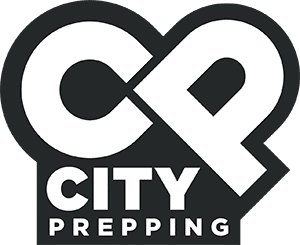


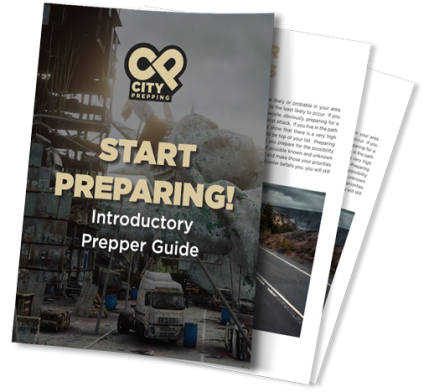

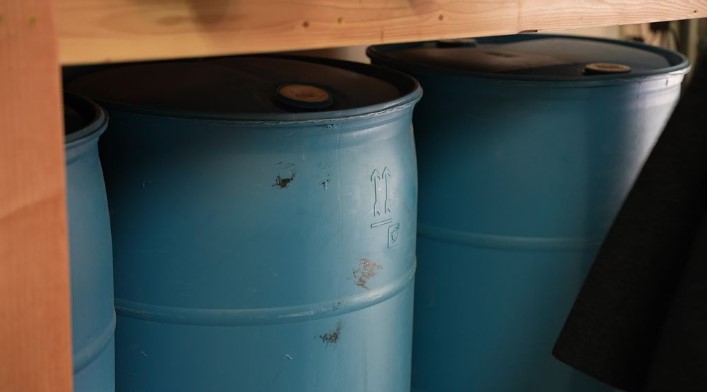

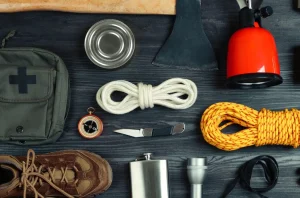

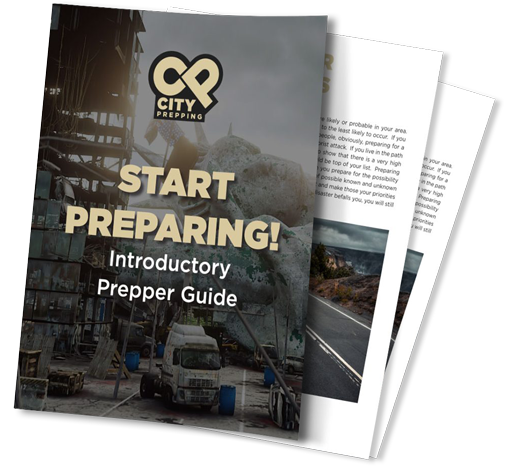
2 Responses
The second mention of diphenhydramine is misspelled as diphendramiamine in the Antihistamines section. Not a grammar or spelling nazi, just pointing it out for those who search for these products with this ingredient.
Love your YouTube channel!
Even though this topic is otc..possibly
remember your pet’s medicine also.